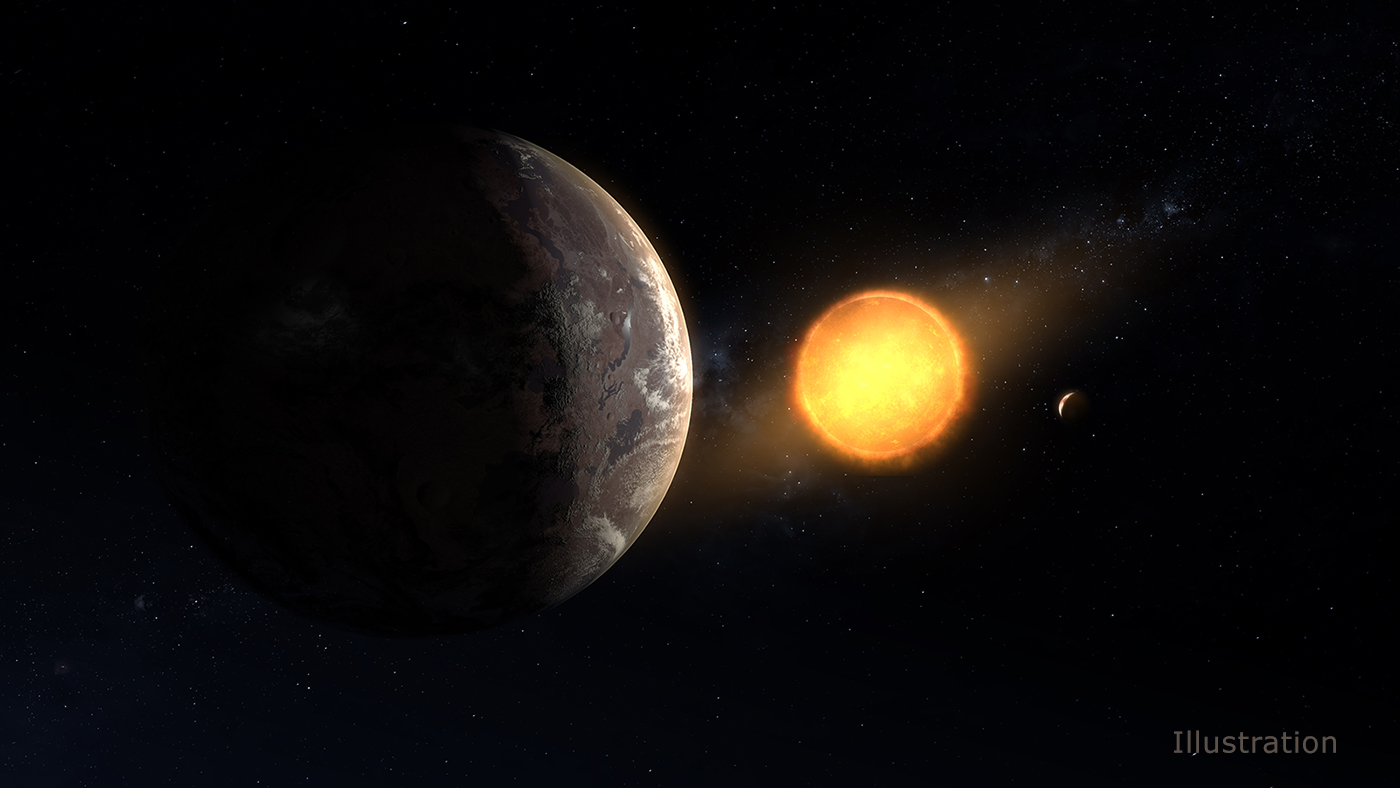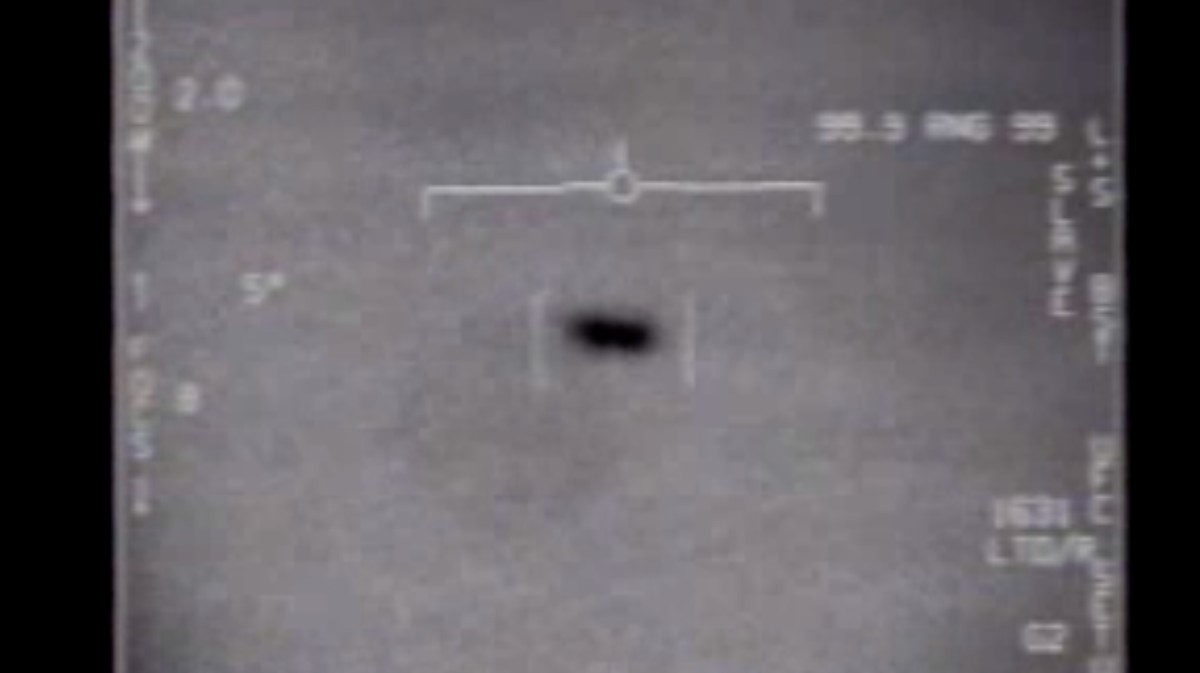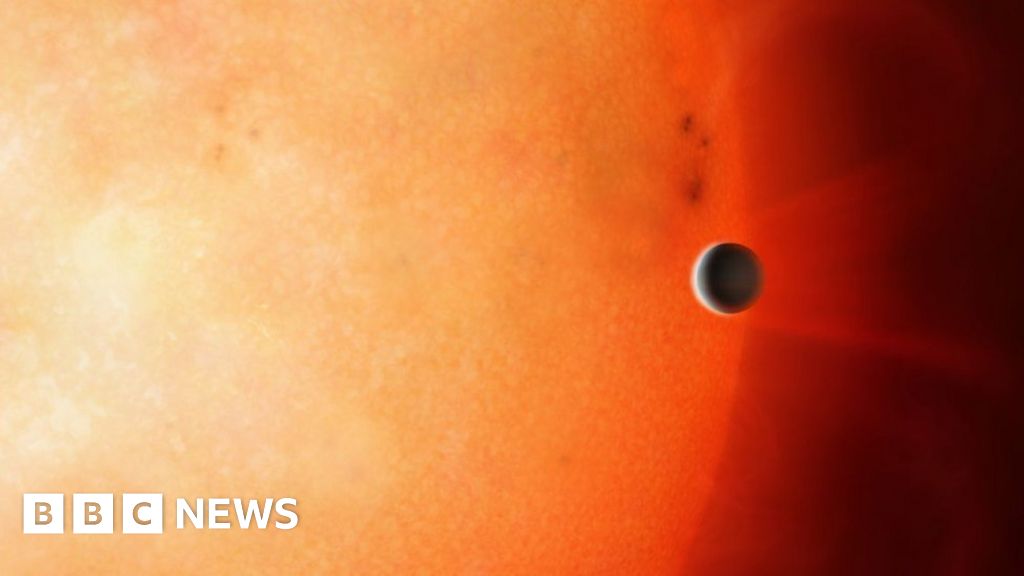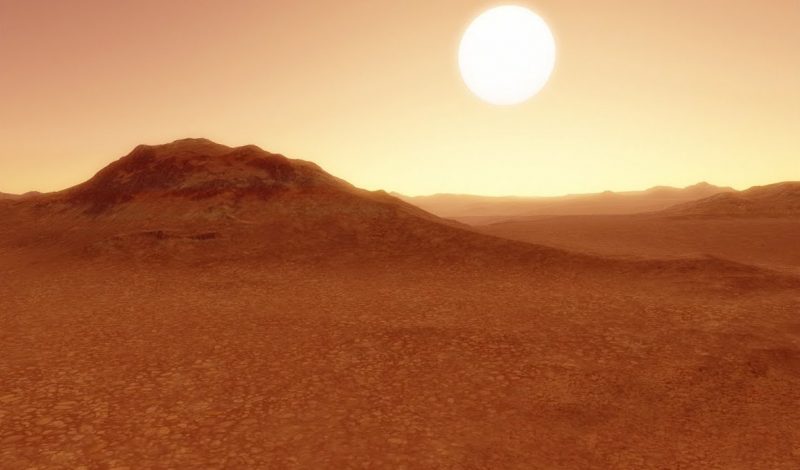The weather forecast for the giant, super-hot Jupiter WASP-79b is steamy humidity, scattered clouds, iron rain, and yellow skies. This exoplanet orbits a star that is hotter and brighter than our Sun, and is located at a distance of 780 ly from Earth in the constellation Eridanus.
The surprise in recently published results, is that the
planet's sky doesn't have any evidence for an atmospheric phenomenon called Rayleigh scattering, where certain colors of light are dispersed by very fine dust particles in the upper atmosphere. Rayleigh scattering is what makes Earth's skies blue by scattering the shorter (bluer) wavelengths of sunlight.
Because WASP-79b doesn't seem to have this phenomenon, the daytime sky would likely be
yellowish, researchers say.

hubblesite.org












